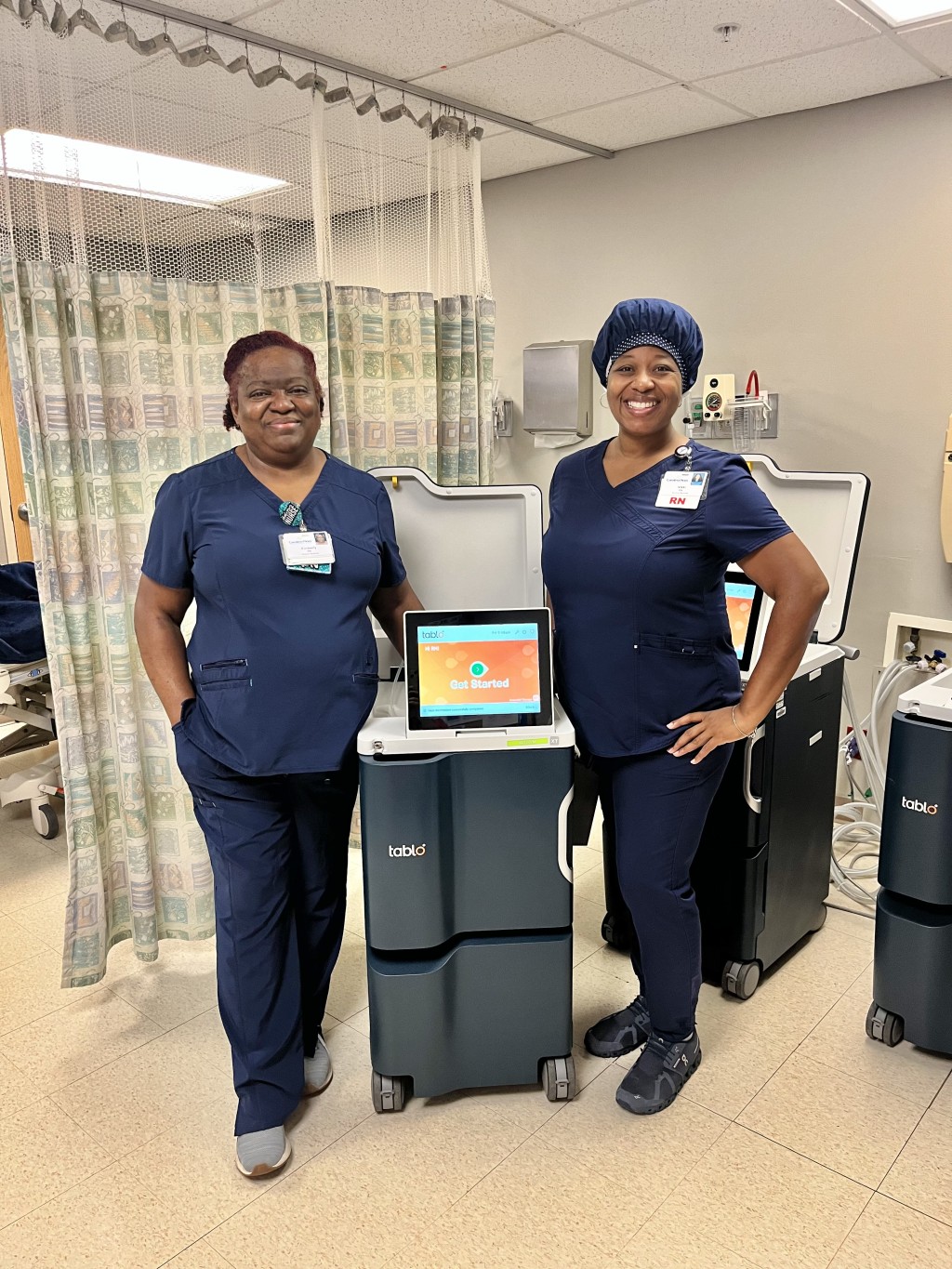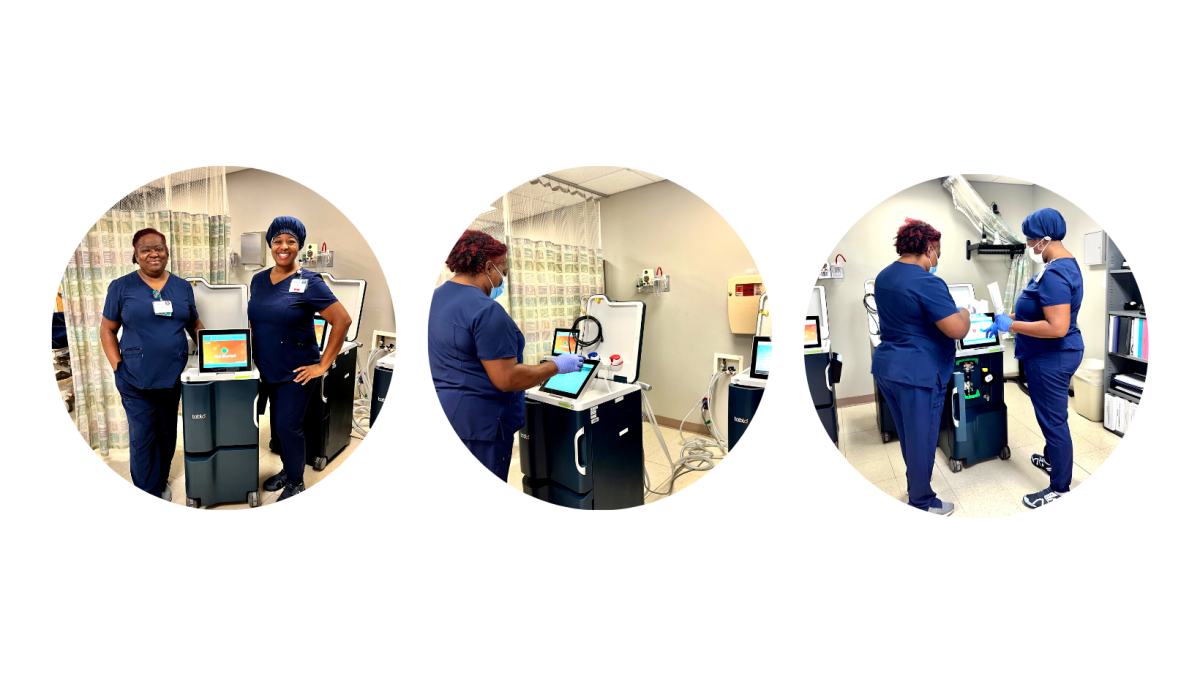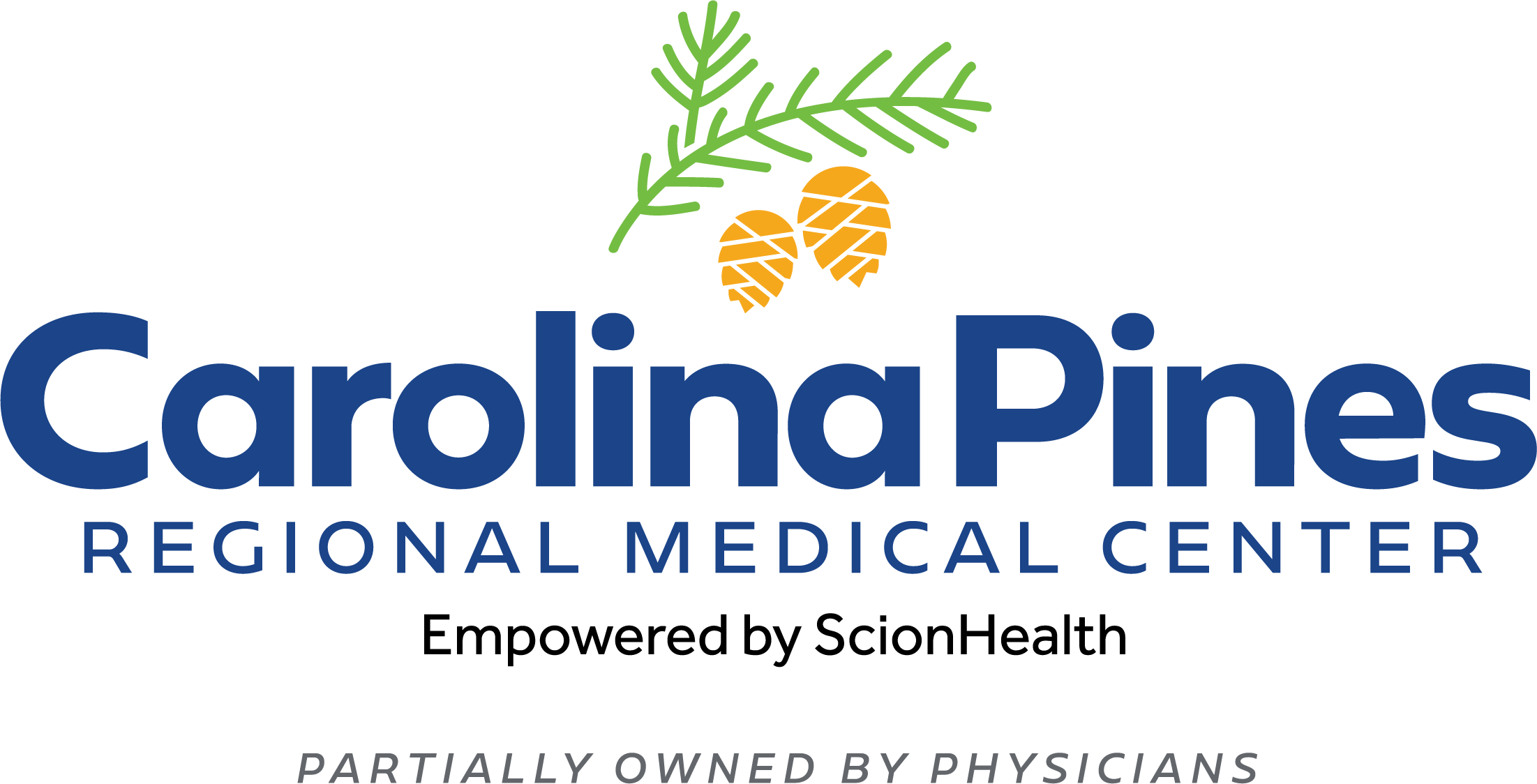Carolina Pines Regional Medical Center is the first in its service area to bring its acute dialysis services in-house
July 20, 2022

The Tablo® Hemodialysis System is capturing the attention of dialysis programs around the country.
South Carolina has some of the highest rates of hypertension and diabetes in the nation, and for the small, rural community of Hartsville, this means a growing kidney disease population and demand for dialysis. Carolina Pines Regional Medical Center offers dialysis as an important inpatient service line and this past winter, the hospital was faced with challenges that required a unique solution.
The hospital was overwhelmed with some of the highest COVID-19 census numbers since the pandemic began, with many patients requiring dialysis for kidney failure. So, leadership decided to transition its dialysis program from an outsourced vendor arrangement to an in-house service line in the hospital’s ICU and dialysis unit, to help meet the increasing demand.
“We had to step up to meet the needs of our community, and for this we knew we had to do something different and innovative, “says Chief Nursing Officer Christy Moody, MSN, RN, CCRN-K, CPPS.
The Carolina Pines team looked at ways that they could address these issues by quickly bringing their dialysis line in-house, so that they could more timely and effectively meet the needs of their patients.
“It was clear that we needed to bring this service in-house,” says Chief Medical Officer, Brian Sponseller, MD. Dr. Sponseller had heard about a new dialysis technology, the Tablo® Hemodialysis System, from a medical colleague. Then, Outset Medical introduced the system at an onsite demonstration event.
“We went from ordering the machines in January 2022, to our first patient on March 28,” says ICU Director and Dialysis Director, Ashlee Horton, RN, BSN, CCRN.
“The staff really stepped up and wanted to learn about the innovation built into the new machine,” adds Moody. “They recognized quickly after working hands-on with it during our staff training that it was going to be simple to use due to the advanced technology and the myriad of sensors.”

At Carolina Pines, nurses can now perform acute intermittent hemodialysis (IHD) or longer-duration treatments in all 21 beds in the ICU and PCU. “Dialysis can be performed in the patient's room, with an ICU or dialysis nurse,” Horton continues. “Also, our dialysis or ICU nurses can treat patients in a three-bay area outside of the ICU, where they also dialyze non-ICU patients. We have a lot more flexibility with our nursing staff.”
Carolina Pines has also seen an impact on length of stay and patient outcomes. “From a scheduling standpoint, we now can prioritize who gets run,” says Dr. Sponseller. “If someone’s being discharged, they get treated first. It has helped us get patients home earlier in the day, especially if they need dialysis. Our nephrologists have been really satisfied with this improvement, and so have patients.”
Being the first program in its service area to fully convert to an in-house Tablo dialysis model, word has spread quickly. The Carolina Pines team has been fielding requests from around the country for information and site visits to learn more about their program. “We literally have almost a call a day with a facility that is looking at a conversion but concerned about the hardship on their nurses, or those that are planning to implement Tablo,” says Moody. “It's been such a good win for our facility, and we love sharing the news with folks. I tell them that with the increased patient satisfaction and decreased run time, it really is a no brainer. It's exciting to think about the possibilities for this technology in the future.”
